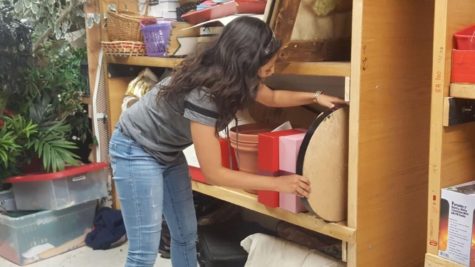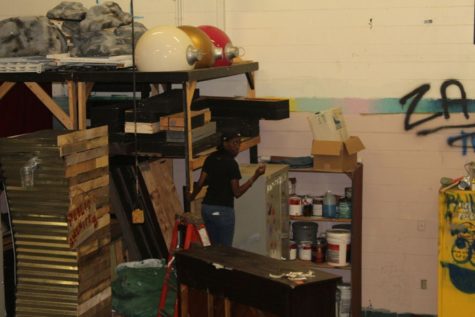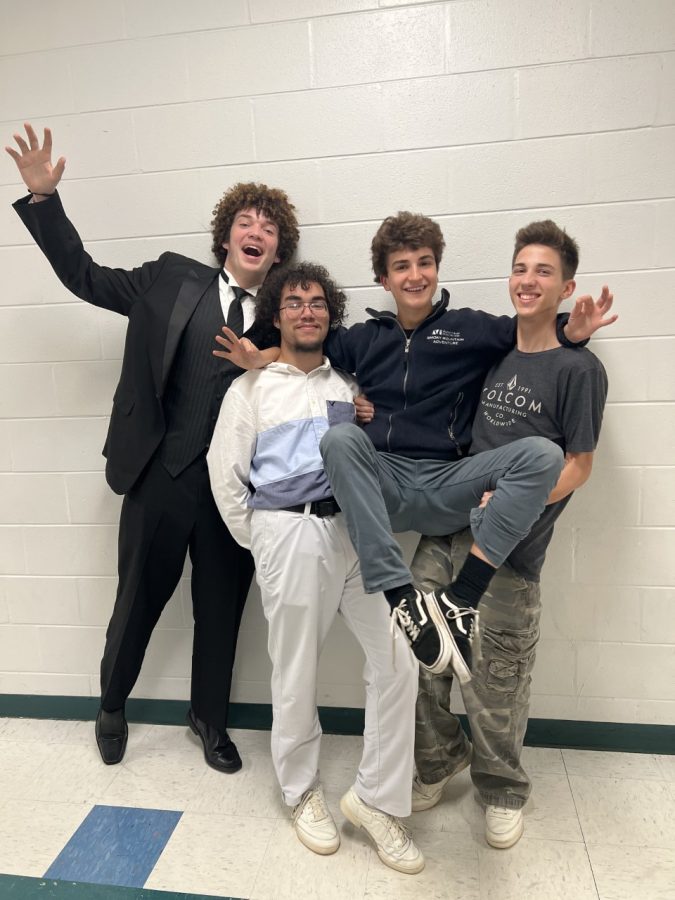A Yellow Jacket’s guide to Technical Theater
Everything you need to know about Tech majors!
September 8, 2017
Many Blake students flock to the theater to watch plays that captivate the audience with inspiring performances. However, most students don’t know about how each incredible scene was put together. Technical Theater, a small yet mighty major, prepares and designs every theater production with intensity and resolve. The upcoming play, The Nerd, will be no different. A quick glance into the large workshop proves that each student is dedicated to bringing the play to life. The technical theater department could be compared to the heart of the E building, beating strongly and providing substance to every other area of theater. But what do the tech majors do? The question puzzles many students.
According to Blake’s website the students partake in a “structured study in all aspects

of theater: construction, lighting, sound, and design”. Mr. Conley, the technical theater teacher, teaches these skills to each of his students. Described by his students as an excellent teacher, he is obviously greatly appreciated. When asked what his students do to prepare for they play, he expertly lists “they design, work on the set, sound, and build props”. This year, the major has only two new students amounting to a total of 53 students. Although the number is incredibly small, contrasted by the theater major’s roster of over 300 students, each student is dedicated to their craft.
Technical Theater students Deborah, a senior, and Julissa, a junior, can be seen in the tech theater classroom working diligently on whichever project that they may be assigned to. Deborah said that their individual projects depend on what is necessary or their own personal skills. The actions of both students showed their deep admiration of the work that they do. Julissa had become involved in technical theater in middle school when she was first exposed to it. Similarly, Deborah had also discovered the world of technical theater when she was in middle school. Her mother, who worked for the school’s drama department, had introduced her to it in middle school. Little did they know that they would be working in stagecraft throughout high school. Julissa said that her favorite part of being a tech major is “that sense of achievement after the show”. Both students clearly enjoy their craft immensely.

Technical theater majors can be seen designing props, sawing wood, and painting designs among a multitude of other tasks. The students seem more identical to trained professionals than high school students, and for good reason. “We take special precautions when training new majors,” Julissa comments, with Deborah agreeing, saying, “You learn as you go.”
The final question is one that is unsurprisingly easy for them to answer. “What is one thing you want every student to know about your major?” The question is answered faster that it was asked. “Everyone should know that it’s not just the actors,” Deborah says, and Julissa adds, “We exist.” Although it is easy to see how the major can be overshadowed by their acting counterparts, only a skilled actor could pretend as though the technical theater is not completely spectacular. They don’t only light up the stage because they are actually in charge of the lighting, but because every item that they make that graces the stage glows with unequivocal craftsmanship. With a final comment, Julissa captures the elusive yet alluring essence of the tech theater, “We are the ninjas behind the scenes.”













